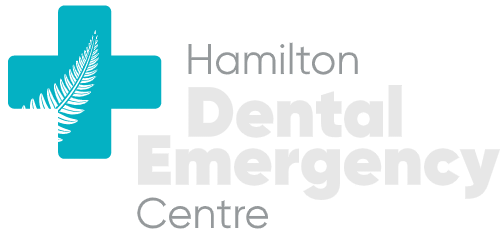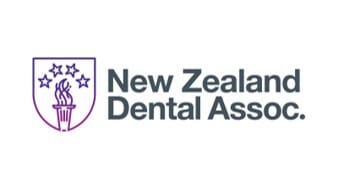For parents, ensuring the well-being of their children is a top priority. When it comes to oral health, many parents may find it challenging to address their child’s dental anxiety or provide the necessary dental care, especially when the child’s fear of the dentist stands in the way.
Dental sedation for children is a valuable tool that can ease dental anxiety and make dental visits less stressful for both kids and parents.
Understanding Pediatric Dental Anxiety
Pediatric dental anxiety is a common issue. Children may develop dental fears for various reasons, including:
- Fear of the unknown: The dental office can be an unfamiliar and intimidating environment for a child.
- Previous negative experiences: A past painful or uncomfortable dental procedure can lead to anxiety about future visits.
- Fear of pain: Many children are afraid of experiencing pain during dental treatments.
- Sensitive gag reflex: Some children have a heightened gag reflex, making dental work uncomfortable.
- General anxiety: Some children may have generalized anxiety disorders that manifest during dental visits.
Benefits of Dental Sedation for Children
- Anxiety Reduction: Dental sedation techniques are specifically designed to alleviate a child’s anxiety and fear. By inducing a state of relaxation, children can undergo dental procedures without emotional distress.
- Pain Management: Dental sedation often includes pain relief components, ensuring that children do not experience pain during treatment. This can be especially important for procedures such as fillings or extractions.
- Cooperation: Children who are anxious or uncooperative during dental visits can become more manageable under sedation, allowing dentists to provide efficient and effective care.
- Increased Safety: Dental sedation for children is safe when administered by experienced professionals, with careful monitoring throughout the procedure.
Types of Dental Sedation for Children
Several types of dental sedation are available for children, and the choice depends on the child’s age, medical history, and the dental procedure:
- Nitrous Oxide (Laughing Gas): Nitrous oxide is inhaled through a mask and provides mild sedation. It’s often used for less invasive procedures and is safe for children.
- Oral Sedatives: These are administered as a liquid or pill and can provide moderate sedation. They are suitable for older children and for more extensive procedures.
- IV Sedation: Intravenous sedation is administered through an IV line, providing deeper sedation and is usually reserved for complex procedures or extremely anxious children.
Ensuring Safety
Safety is a top concern when it comes to pediatric dental sedation. Knowing your child is being treated by a dental team qualified and experienced in using IV sedation techniques gives you peace of mind. The dental team will carefully monitor the child’s vital signs throughout the procedure, ensuring their well-being.
Consultation and Individualized Care
Before scheduling dental sedation for a child, have a consultation with us. Our dentist will assess the child’s dental needs, medical history, and level of anxiety to determine the most suitable sedation method. Open communication is crucial, and parents should share any concerns or relevant medical information with the dentist.
Before and after dental sedation, it’s important to follow specific dos and don’ts to ensure the child’s safety and a smooth recovery. Here are some guidelines:
Before Dental Sedation
Dos:
- Follow Pre-Sedation Instructions: Adhere to all the pre-sedation guidelines provided by your dentist. These may include fasting for a certain period before the procedure.
- Discuss Medications: Inform the dental team about any medications your child is currently taking and follow their guidance on whether to continue or pause them before the sedation.
- Ask Questions: Don’t hesitate to ask your dentist any questions or express concerns you may have about the procedure or the sedation method.
- Prepare Comfort Items: Bring comfort items, like a favourite stuffed animal or blanket, to help your child feel at ease before and after the sedation.
Don’ts:
- Don’t Feed or Drink: Ensure your child does not eat or drink after the instructed fasting time. Following these guidelines is crucial to prevent complications during sedation.
After Dental Sedation
Dos:
- Follow Post-Sedation Guidelines: Adhere to all post-sedation instructions provided by the dental team, including any restrictions on eating and drinking.
- Monitor Your Child: Keep a close eye on your child for the initial recovery period. They may be drowsy or disoriented.
- Maintain Hydration: Encourage your child to sip water to stay hydrated, but avoid excessive drinking immediately after sedation.
- Offer Soft Foods: After the sedation, provide soft, easily digestible foods like yogurt, applesauce, or mashed potatoes to prevent any discomfort while eating.
- Observe for Side Effects: Be vigilant for any unusual side effects, such as nausea, vomiting, or allergic reactions. Contact your dentist if you notice any concerning symptoms.
Don’ts:
- Avoid Solid Foods: Do not offer solid or crunchy foods immediately after dental sedation to prevent choking hazards or discomfort.
- Limit Physical Activity: Encourage your child to rest and avoid strenuous physical activities for the remainder of the day.
- Do Not Leave Unattended: Do not leave your child unattended for the first few hours after sedation, as they may be drowsy or disoriented.
- No Driving: As a parent or guardian, refrain from driving for a few hours if you have received sedation as well.
Remember that each child’s response to dental sedation may vary, so it’s essential to closely follow your dentist’s specific instructions to ensure a safe and comfortable recovery process. If you have any concerns or questions, do not hesitate to us.
Ensuring proper oral hygiene in childhood sets the stage for a lifetime of healthy smiles.
Top 10 tips that will help kids maintain strong teeth and gums
Brush Twice Daily: Encourage your child to brush their teeth in the morning and before bedtime for at least two minutes each time.
- Use Fluoride Toothpaste: Ensure they use fluoride toothpaste to strengthen tooth enamel and prevent cavities.
- Floss Daily: Teach them the importance of flossing to remove food particles and plaque from between teeth.
- Healthy Eating: Limit sugary snacks and drinks, and promote a balanced diet rich in fruits, vegetables, and dairy products.
- Hydration: Encourage drinking water throughout the day to maintain proper saliva production, which helps protect teeth.
- Regular Dental Checkups: Schedule regular dental checkups for cleanings and early detection of any dental issues.
- Proper Brushing Technique: Teach them to brush using gentle, circular motions to clean all tooth surfaces.
- Mouthguards: If they play contact sports, ensure they wear a mouthguard to protect their teeth from injury.
- Avoid Chewing Hard Objects: Advice against chewing on hard objects like ice, pencils, or hard candies to prevent tooth damage.
- Lead by Example: Set a good example by maintaining your own oral hygiene, and reinforcing the importance of healthy teeth and gums.
Remember that teaching good oral hygiene habits from a young age can lead to a lifetime of healthy smiles.
To explore dental sedation options in Hamilton for your child or to schedule a consultation with the experts in pediatric dentistry, don’t hesitate to contact the Hamilton Emergency Dental Centre today. Your child’s healthy smile is just a call away!
–
Hamilton Dental Emergency Centre is the longest-established after-hours dentist. The practice is well-equipped to handle majority of the dental emergencies 24/7, taking full advantage of the newest advances in technology within the field. Our patients benefit from the clinical expertise of Dr David Smith and Dr Rahul Gautam having a collective experience of more than 60 years.
You can fill out a contact form here: book an appointment, or phone us at 07 834 9293
–
Disclaimer: This article is meant for informational purposes only and does not replace professional medical advice. Always consult with us directly for personalized recommendations and guidance.


 Denture Repairs: How To Restore Your Comfort And Confidence
Denture Repairs: How To Restore Your Comfort And Confidence

